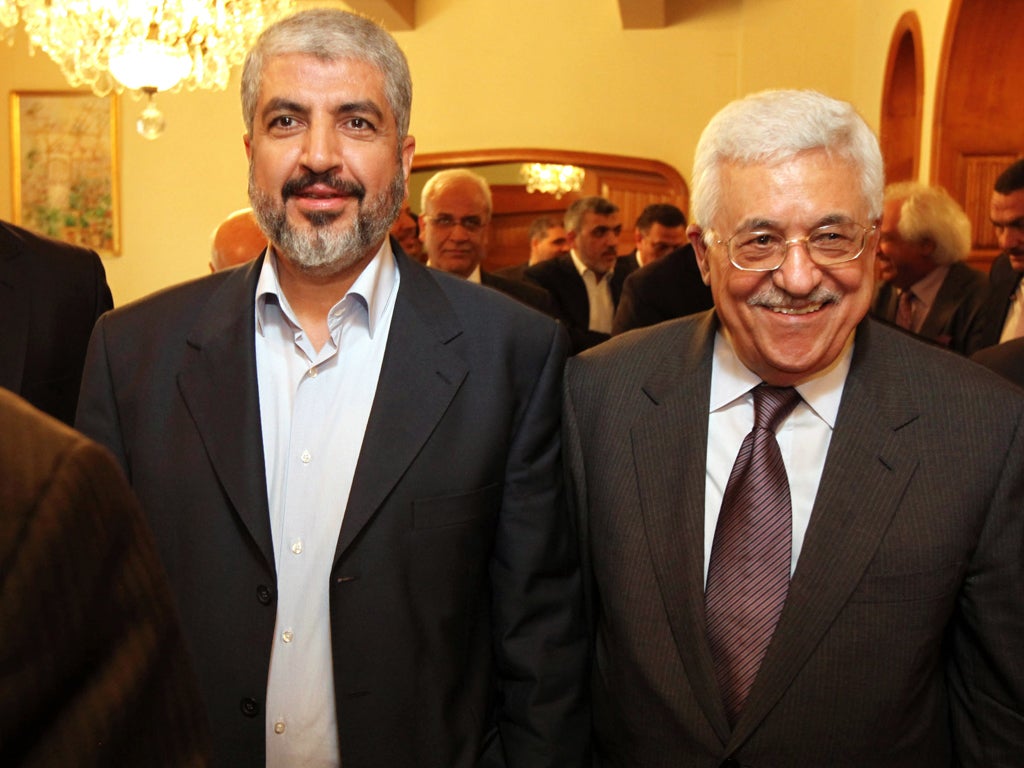
Your support helps us to tell the story
From reproductive rights to climate change to Big Tech, The Independent is on the ground when the story is developing. Whether it's investigating the financials of Elon Musk's pro-Trump PAC or producing our latest documentary, 'The A Word', which shines a light on the American women fighting for reproductive rights, we know how important it is to parse out the facts from the messaging.
At such a critical moment in US history, we need reporters on the ground. Your donation allows us to keep sending journalists to speak to both sides of the story.
The Independent is trusted by Americans across the entire political spectrum. And unlike many other quality news outlets, we choose not to lock Americans out of our reporting and analysis with paywalls. We believe quality journalism should be available to everyone, paid for by those who can afford it.
Your support makes all the difference.Leaders of rival Palestinian parties yesterday claimed they had narrowed the gaps between them in talks aimed at salvaging a reconciliation deal to end a four-year rift.
But while the Palestinian President Mahmoud Abbas, who heads Fatah, and Khaled Meshaal, the exiled leader of Hamas, were upbeat after their two-hour meeting in Cairo, they offered little evidence they were any nearer to resolving major differences that have stalled the power-sharing deal since it was dramatically unveiled in May.
Hamas seized control of the Gaza Strip from Fatah in 2007 after winning parliamentary elections the previous year, and has established its own government and security forces in the blockaded enclave, complicating efforts to unite the West Bank and Gaza under one authority, a much-cherished dream of Palestinians who see unity as essential to achieving an independent state.
But despite agreement to end the schism six months ago, Fatah and Hamas made no progress in implementing the power-sharing deal that envisaged the establishment of an interim unity government to prepare for presidential and parliamentary elections by May. The two parties have been unable to agree on who would head the temporary technocrat government. Salam Fayyad, the Western-backed Prime Minister, is Mr Abbas's choice, but his appointment had been firmly rejected by Hamas. Mr Fayyad was determined to stay out of the fray last week, saying he would rather step down than be seen as an obstacle to unity.
The Western-backed Palestinian Authority, which governs the West Bank, also faces losing millions of dollars in donor aid if Mr Abbas implements the deal in full. Israel and the US, which view Hamas as a terrorist group, have vociferously opposed the unity deal.
Azzam al-Ahmed, a Fatah official, said yesterday that the two sides agreed to hold elections in May, despite the reservations held by both sides, but it difficult to see how that can happen without an interim government in place.
Join our commenting forum
Join thought-provoking conversations, follow other Independent readers and see their replies
Comments